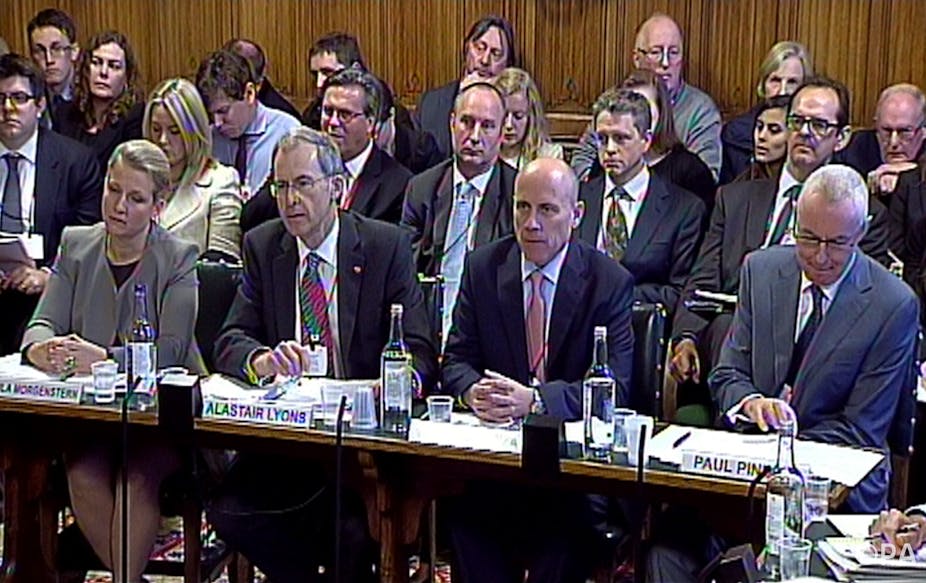On Friday, the National Audit Office released a report detailing its investigation into the COMPASS housing project, a series of contracts between the Home Office and three service providers – G4S, Serco and Clearel – that offer accommodation to destitute asylum seekers awaiting decision outcomes or removal from the United Kingdom.
The report is an ostensible victory for campaigners who have continuously drawn attention to the failings of the contract holders, primarily Serco and G4S. Indeed, the NAO acknowledges that its decision to investigate the administration of the contracts was due to correspondence received from concerned parties.
The report acknowledges that the transition into the COMPASS programme featured delays as G4S and Serco missed contractual deadlines. It notes the meagre economic savings of the COMPASS contracts, the firms’ failure to inspect housing prior to acquisition, and their inability to keep to agreed “key performance indicators” (KPIs). Yet it offers no censure. It does not reflect on the implications of public service contracts designed for corporate profit.
Rather, the NAO supports the Home Office’s “commitment to … making the contracts work”. It recommends that the Home Office “work with providers to resolve outstanding issues” and “develop appropriate mechanisms to capture feedback from service users about their experiences”. It is on this point that the NAO fails in its aim of assessing “the experience of service users”.
No interviews were conducted with asylum seekers accommodated under the COMPASS programme as part of the NAO’s investigation. The Home Office has not conducted “surveys or focus groups with service users” for the purposes of contractual review, and the NAO relies heavily on “anecdotal evidence” and responses from G4S and Serco themselves to gauge how well private security firms are addressing residents’ concerns with subcontractors.
Disrupted lives
As part of an ongoing research project, I have spoken to asylum seekers and personnel in the refugee and asylum-seeker support community in the north-east of England and in Scotland about life under the COMPASS programme. The impact of missed KPI targets is considerably different when viewed through the lens of human experience. Poor housing conditions, unfulfilled repair requests, unannounced and infrequent inspections and insensitivity to religious and ethnic differences were key features of most interviews.
The report states that 90% of asylum seekers were able to stay in their existing accommodation during the transition period. However, for those interviewed, sudden moves with little warning were a distressing reality of the experience. While contractors were expected to give families notice of 14 days and individuals ten days prior to relocation, people I spoke with related how the actual time frames given were sometimes much shorter.
A family living with Cascade, a subcontractor to G4S, reported being given notice of a single day. The father said to me, “[I] told them they have to give us notification and give us some time, at least to be able to pack up.” A family with young children in a property managed by Orchard & Shipman, a subcontractor to Serco, was given just two hours to relocate. Speaking with me, the mother expressed her frustration and helplessness at having “no choice” in the matter, “I didn’t receive a letter … nobody called me.”
Parents worried their children’s mental and physical health was undermined by school moves and disruptions to community integration. A mother explained that her sons were constantly depressed, with the eldest “always crying”. When faced with another move, she opted to send one child to school on the bus, despite the cost, so he could continue with his studies and maintain established friendships.
While G4S claims to provide welcome packs “available in several languages” to its newly dispersed residents, asylum seekers’ experiences with these packs vary considerably. Some found them to be adequate, but some received packs with blanks where area-specific information should have been present; others did not receive packs and were therefore unaware of essential services, such as local GPs and post offices. Many respondents explained that they relied on local volunteer organisations to help orientate themselves in their new communities. For those without the knowledge, language skills or confidence to approach such agencies, feelings of precariousness were no doubt compounded.
Contrary to Serco’s claim in the report that it provides vacuum cleaners for its residents, respondents regularly complained that they were expected to use a dustpan and brush to clean carpets. A mother explained to me that she feared for her baby’s health as the child played on the floor. After pausing, she continued: “We know we are in the process of immigration, but we are human … we are not animals. It’s so hard.”
Subcontractors’ aims to move asylum seekers to more remote and affordable housing have affected their access to essential services – and their ability to attend requisite signings with the Home Office. Interviewees explained the Home Office will only fund bus journeys to its offices that are further than three miles “as the crow flies”. The effects of these moves are likely to intensify, as the NAO report reveals that service providers seek to “expand into new areas outside the agreed dispersal postcodes”.
During a Home Affairs Select Committee meeting on asylum in June last year, Labour MP David Winnick questioned Stephen Small of G4S and Jeremy Stafford, who was CEO Serco in Europe and the UK until last November, stating: “You’re not philanthropists. You’re in the business, are you not, to make profit one way or the other, yes?” Small and Stafford each replied: “yes”. It is a fact not lost on those in their care. As an interviewee explained to me, “G4S is only interested in the millions they are paid”.
Perhaps future reports will fully assess the suitability of privatising social housing in any form, given Jeremy Stafford’s claim that asylum housing represents a “platform” for an “accommodation business” that is “scalable” to “other geographies”.

